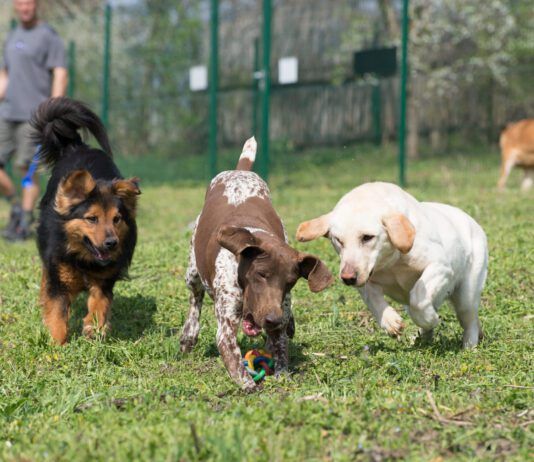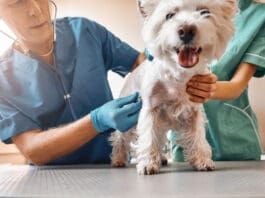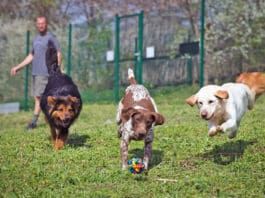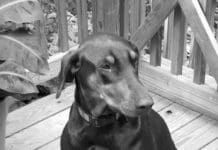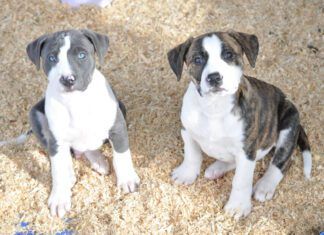9 Things To Do if Your Puppy Has Kennel Cough
Kennel cough, or tracheobronchitis, is comparable to the common cold in humans. Nevertheless, it is frightening to many new dog guardians to discover that their puppy or newly rescued dog has contracted the disease. An unrelenting goose-like cough is the hallmark of kennel cough in dogs, but fortunately, most cases are treated successfully at home. To ensure your puppy recovers from kennel cough in a minimal amount of time and without complication, Whole Dog Journal has outlined the necessary steps you, the concerned guardian, need to take.
The Many Causes of Kennel Cough
Dogs with the uncomplicated form of kennel cough tend to be otherwise healthy and continue to eat, drink, and play. Their lungs will usually sound normal, but some may experience lethargy and have a slight fever like my young pup. Others may experience nasal discharge and sneezing; still others exhibit only a persistent cough sometimes dry and hacking, or soft and wet. Excitement, exercise, and changes in temperature or humidity can induce coughing, as can gentle pressure on the trachea, such as from a collar.
Kennel Cough Resources
These products and informational resources on the bordetella virus are meant to help you alleviate your dog's symptoms of kennel cough. For more information on kennel cough from Whole Dog Journal, see Kennel Cough: Treatment, Symptoms, Prevention.
Preventing and Treating Kennel Cough
You're not likely to forget it if you've heard it even once: the half-cough, half-choke sort of like a Canada goose in need of a Ricola lozenge that signals your dog has come down with kennel cough.
Kennel Cough Treatment and Prevention
Anyone who's heard it will recognize the dry, hacking, something's-stuck-in-my-throat cough that won't quit. It's the signature symptom of canine infectious tracheobronchitis, also known as Bordetellosis, Bordetella, and most commonly as kennel cough. Whatever you call it, tracheobronchitis is one of the world's most widespread canine diseases. Like the common cold in humans, tracheobronchitis is highly contagious, rarely fatal, and runs its course in a few days. Fortunately, there are several ways to help make canine patients more comfortable, speed recovery, and prevent future infections. Tracheobronchitis is called kennel cough because of its association with boarding kennels, animal shelters, veterinary waiting rooms, grooming salons, and other areas where dogs congregate in close quarters. It can strike dogs of any age but is most common in puppies, whose immune systems are still developing, and adult dogs with conditions that impair immune function.


